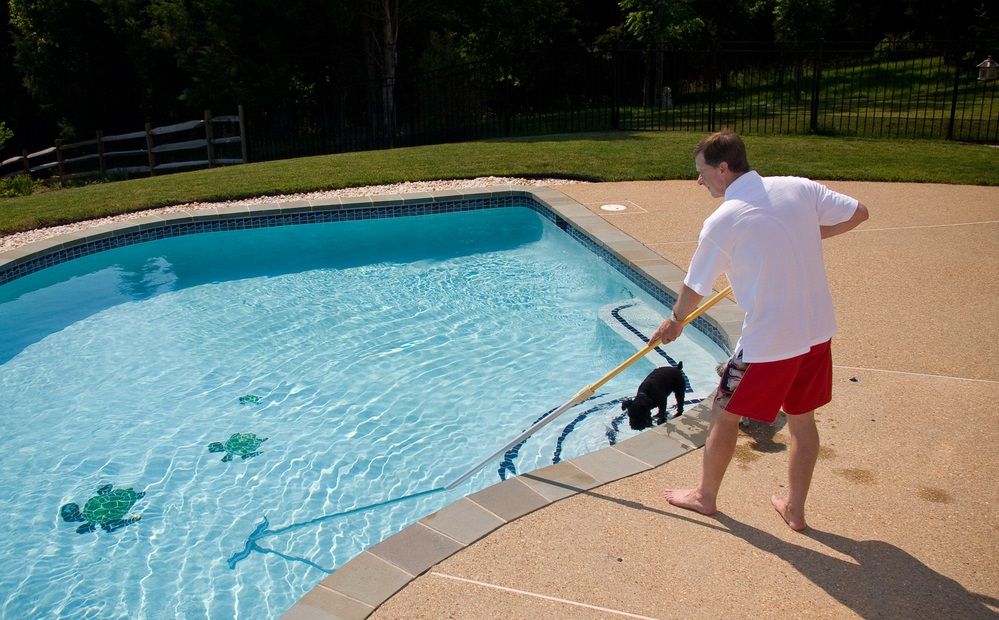If you’re fortunate enough to still have your swimming pool open, and there are a couple of reasons you might be:
- You live in an area of the country that allows for almost — or all the — year-round swimming
- You have a pool heater
- You have an indoor swimming pool
Labor Day is the “usual” time that many pool owners consider as being the end of the swim season. If you still have your pool open because you’re hoping for a few more good days of swimming, we congratulate you because we know how much fun it is to spend time in the pool with friends and family, especially if you can have a Halloween get-together poolside.
The calendar and the weather are the main factors in scheduling a swimming pool closing. Reach out to a local swimming pool service contractor or talk with your contractor and determine a time to have the swimming pool closed. If you have a pool heater and if it’s warm enough outside, you may still be able to tell your Halloween party guests to come in a costume and to bring a swim suit!
Call Your Pool Contractor & Schedule A Closing
Closing the pool properly for the season is crucial to its ease in opening the following summer but it is also crucial to protect the pool and its equipment throughout the winter months. Potential freezing and water damage can be costly and this can happen if the pool isn’t properly closed and the water fully drained from the plumbing and the pipes.
Your swimming pool contractor is experienced in the nuances of a proper swimming pool closing, the correct chemical balances and water levels required to best protect your swimming pool and the investment you’ve made in it.

Here are reasons a pool contractor recommends a proper and thorough swimming pool closing rather than leaving it to chance once you’re done swimming for the season.
- Preventing freeze is the number one most important reason to ensure the pool is properly closed. A freeze could lead to the filter, pump and skimmer baskets being damaged and require replacement or potentially costly repairs when the pool is opened the following season. A freeze and an improperly closed pool could also wreak serious havoc to the underground or behind the pool wall plumbing.
- The pool should be given a final deep clean prior to closing. Your pool contractor will brush the walls and floor, vacuum up the debris and add an algeacide to prevent algae growth during the winter months.
- Water chemistry will be tested and proper chemicals added to keep the water clean during the winter months. Proper chemical balancing is required to prevent discoloration of the pool walls and floor, equipment corrosion or scale and calcium build up.
- The water levels will be lowered a few inches to give the pool space to contract and expand with the freezing tempertures.
- The pool filter will be removed, thoroughly cleaned and stored in a warm, dry place. Water will be blown out of the lines to prevent freezing and cracking. An anti-freeze may be added as well.
- The swimming pool’s winter cover will be securely placed after the pool contrator has added floats to the water. The floats enusre the water doesn’t thoroughly freeze and potentially damage the pool. Foats also keep the cover from falling into the pool if there is a lot of rainwater or any ice build up.
Even after the pool has been properly closed and covered for the season, your pool contractor will ask you to check the pool regularly to ensure the cover is still in place and that there isn’t a lot of standing water in the cover as that could damage the cover and the pool.

